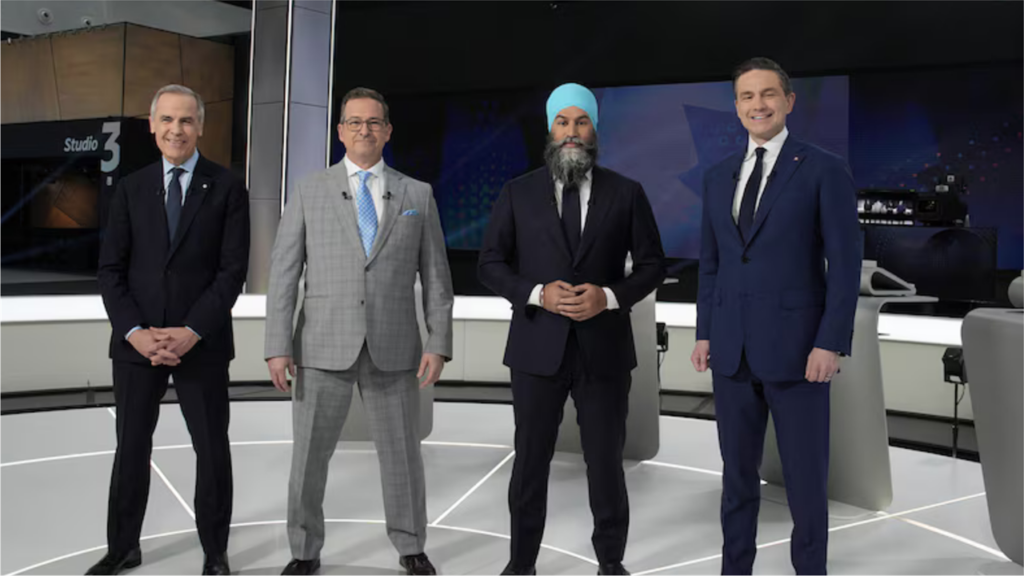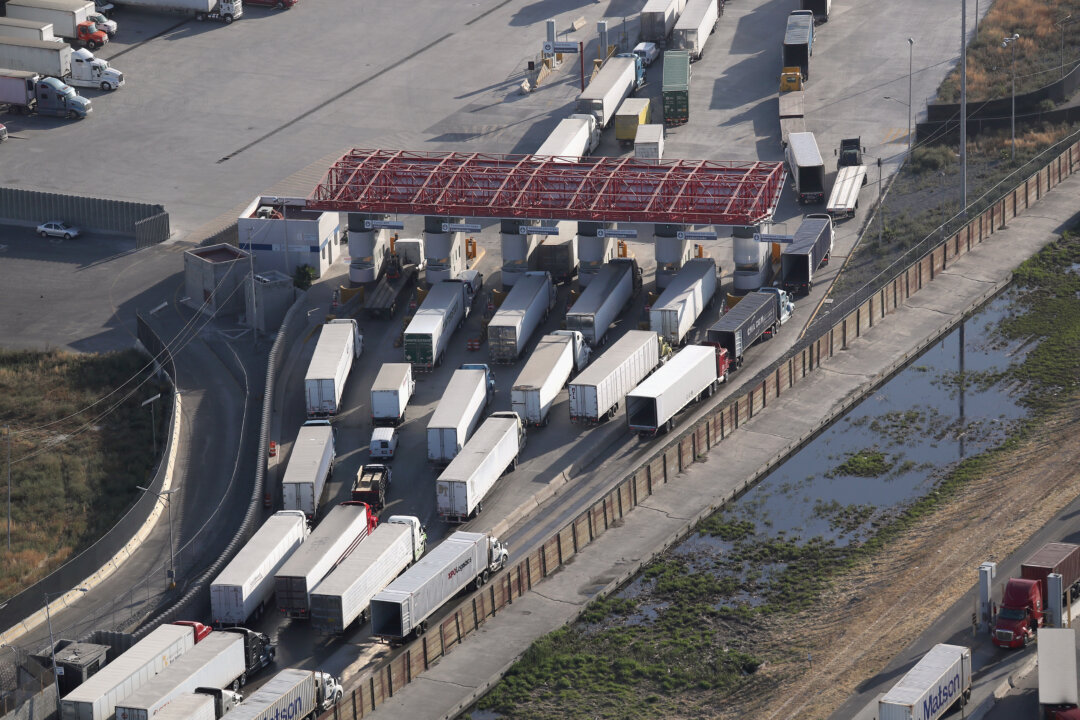ARIA: The UK government’s secretive agency masquerading as a beacon of scientific progress – The Expose
ARIA: The UK government’s secretive agency masquerading as a beacon of scientific progress
The UK Advanced Research + Invention Agency’s (“ARIA’s”) £800 million budget, channelled through the Department for Science, Innovation and Technology represents a colossal drain on public resources, yet its spending remains a tightly guarded secret.
ARIA’s operations are so opaque that its secrecy is unparalleled, even among peers such as the US Advanced Research Projects Agency for Health (“ARPA-H”) and the Defence Advanced Research Projects Agency (“DARPA”).
So, who are they and what are their aims?
In the following article, The Sentiment Inspector investigates what this government agency is concealing and the price the public and planet will pay for its unchecked experiments.
Let’s not lose touch…Your Government and Big Tech are actively trying to censor the information reported by The Exposé to serve their own needs. Subscribe now to make sure you receive the latest uncensored news in your inbox…
Advanced Research + Invention Agency
Secretive Science, Gambling with Our Future
The Advanced Research + Invention Agency (“ARIA”), unveiled in January 2023 under the UK government’s Department for Science, Innovation and Technology (“DSIT”), masquerades as a beacon of scientific progress.
With a staggering £800 million of taxpayer funds allocated over five years (2023–2028), ARIA claims to pursue groundbreaking innovations in artificial intelligence (“AI”), climate manipulation and brain-interfacing neurotechnologies.
Yet, its clandestine operations, shielded from public scrutiny and marked by a chilling exemption from oversight, paint a dark picture. Its reckless dive into high-risk ventures, particularly solar geoengineering, reeks of hubris and hidden agendas. With mysterious figures pulling the strings, opaque partnerships, and a steadfast refusal to divulge critical details, ARIA’s true motives remain buried.
What is this agency concealing, and what catastrophic price will the public and planet pay for its unchecked experiments?
Unaccountable Mystery Elites
ARIA’s leadership operates like a cabal, wielding immense power with scant accountability. Chief Executive Officer Ilan Gur drives the agency’s vision, championing “high-risk, high-reward” research that prioritises haste over transparency. Chair Matt Clifford oversees a board that reports to Parliament but cloaks its deliberations in secrecy, dodging public inquiries with unsettling ease. Programme Directors, including Suraj Bramhavar (Scaling Compute), Jacques Carolan (Precision Neurotechnologies), David Dalrymple (Safeguarded AI), Gemma Bale (Climate and Earth Observation) and Mark Symes (Solar Geoengineering), handpick projects with minimal peer review, their decisions veiled from scrutiny.
This unchecked autonomy, touted as a DARPA-inspired virtue, smells of a dangerous license to experiment without consequence.
Chief Product Officer Pippy James spins a narrative of entrepreneurial innovation, claiming to “de-risk” ideas for market uptake, but her focus raises alarms: is ARIA funnelling public funds to private profiteers? Even Sir Patrick Vallance, a non-executive board member and former Government Chief Scientific Adviser, lends a veneer of legitimacy to this mysterious enterprise, yet his presence fails to quell fears of government-sanctioned deception. These figures thrive in an echo chamber, their actions hidden from the taxpayers they claim to serve, leaving us to question who truly reaps the rewards of ARIA’s shadowy ventures.
A Taxpayer-Funded Black Hole
ARIA’s £800 million budget, channelled through DSIT, represents a colossal drain on public resources, yet its spending remains a tightly guarded secret. The agency deploys a range of funding mechanisms, including programme grants, seed funding, loans, equity finance and inducement prizes, but refuses to disclose precise allocations. Projects like the £42 million Scaling Compute initiative and the £14.2 million Safeguarded AI programme are paraded as visionary, yet their details are buried in bureaucratic fog.
Most alarming is the £57 million poured into solar geoengineering, a perilous scheme to manipulate the climate, with funds flowing to experiments that could irreversibly alter global ecosystems without public consent.
The agency’s exemption from Freedom of Information (“FoI”) requests, enshrined in its founding legislation, is a brazen betrayal of public trust. Labour MP Dawn Butler has raised red flags, warning that this opacity mirrors the government’s covid-era personal protective equipment (“PPE”) scandals, where billions vanished amid lax oversight (BBC). ARIA’s claim that its accounts face parliamentary scrutiny rings hollow, as its annual reports offer vague platitudes, revealing nothing about how taxpayer money is spent or who profits. This financial black hole fuels suspicion that ARIA is a playground for well-connected elites, siphoning public funds into speculative gambles with no guarantee of societal benefit.
Reckless Experiments with Global Stakes
ARIA’s portfolio blends audacious science with terrifying recklessness, each project dripping with potential peril:
- Solar Geoengineering (£57 million): Led by Mark Symes, this initiative funds experiments in marine cloud brightening, ice sheet thickening, space-based reflectors and cirrus cloud thinning, aiming to artificially cool the planet. Critics, including climate scientists Raymond Pierrehumbert and Michael Mann, brand it a “dangerous distraction” from emission reductions, warning of a “termination shock” that could trigger catastrophic climate chaos if halted (The Guardian). With no global governance, the risk of misuse by private magnates like Elon Musk or rogue states looms large, yet ARIA forges ahead, heedless of the consequences (The Exposé).
- Safeguarded AI (£14.2 million): David Dalrymple’s programme seeks formally verifiable AI systems for critical infrastructure, but its secretive development raises doubts. Is “safety” a genuine goal, or a pretext for consolidating AI control in the hands of a few?
- Precision Neurotechnologies (funding undisclosed): Jacques Carolan’s work on brain-computer interfaces for neurological therapies sounds noble, but its potential for surveillance or mind control is chilling. Without transparent safeguards, who prevents these tools from becoming Orwellian nightmares?
- Scaling Compute (£42 million): Suraj Bramhavar aims to slash AI compute costs by 1,000x, but closed-door deals with startups and corporations hint at profiteering, not public welfare.
- Programmable Plants (up to £500,000 per project): This effort to engineer plants for CO2 removal or medicine delivery sidesteps public input, stoking ethical fears of genetic tampering.
- Climate and Earth Observation, Nature Computes Better, Smarter Robot Bodies: These vaguely defined projects, with undisclosed funding, delve into climate data, computational paradigms and bio-inspired robotics. Their opacity only deepens distrust.
ARIA’s embrace of failure as a feature of its high-risk model reeks of a blank cheque to squander public funds on experiments that may yield nothing but chaos. By withholding detailed outcomes or risk assessments, the agency keeps the public in the dark, fostering suspicion that it values prestige over responsibility.
Hidden Network of Players
ARIA’s partnerships are as cloudy as its operations. In the UK, it collaborates with universities, startups, small and medium enterprises (“SMEs”) and public labs like the National Physical Laboratory, mandating that over 50% of project work occurs domestically. Ties to Innovate UK and a loose alignment with UK Research and Innovation (“UKRI”) provide a facade of legitimacy, but the real question is who lurks in the shadows. Pippy James’s entrepreneurial push suggests cosy ties with private corporations, potentially diverting public funds to profit-hungry ventures.
Internationally, ARIA’s alliances are even murkier. Modelled on DARPA but shunning military applications, it draws inspiration from civilian agencies like ARPA-H, hinting at possible links with the US, Canada or EU nations. Yet, as of 23 April 2025, no formal agreements with other countries are publicly disclosed. The agency’s global calls for programme feedback feign openness, but its national security oversight, which allows the Secretary of State to halt risky projects, betrays a paranoid grip on information (GOV.UK). Are ARIA’s climate and AI projects secretly coordinated with foreign powers, or deliberately isolated to shield UK interests? The silence is deafening.
The solar geoengineering programme raises particular alarm. With experiments potentially conducted outside the UK to evade regulations, ARIA may be colluding with nations or private entities in lax jurisdictions, flouting global ethical standards (Science|Business). Without transparency, the public is left to speculate about ARIA’s true partners and their motives, a vacuum that breeds mistrust.
Ethical and Ecological Risks
ARIA’s secrecy and high-stakes projects have sparked a firestorm of controversy, with solar geoengineering at the epicentre. The £57 million initiative, set to launch experiments by mid-2025, is a lightning rod for criticism. Scientists warn of ecological disasters, from disrupted weather patterns to irreversible ecosystem damage, while ethical questions loom: who decides when to tamper with the planet’s climate and who suffers the fallout? Poorer nations like Vanuatu have already opposed such schemes, yet ARIA barrels forward, heedless of global consensus (DevX). The moral hazard, diverting focus from emission reductions, is glaring, with fears that ARIA’s research could enable reckless deployment by private or state actors.
The agency’s FoI exemption is a second flashpoint. Dawn Butler’s warnings about unaccountable spending strike a chord in a post-PPE scandal era, where public faith in government expenditure is brittle (BBC). ARIA’s claim of parliamentary oversight is a hollow gesture when its reports are threadbare and its directors wield near-absolute power. Critics warn this secrecy could conceal mismanagement or favouritism, funnelling funds to well-connected insiders under the guise of innovation (City AM).
Precision neurotechnologies, though less publicised, evoke dystopian fears of surveillance or mind control, particularly without transparent safeguards. Even seemingly benign projects like programmable plants or AI compute scaling are tainted by ARIA’s refusal to engage openly, leaving the public to question whether these ventures serve humanity or a cloaked elite.
A Deliberate Betrayal
ARIA’s operations are a masterclass in deception. Its FoI exemption, deliberately baked into its founding law, ensures taxpayers have no right to know how their £800 million is spent. Programme Directors like Mark Symes, who spearheads the geoengineering gamble, make decisions in secret, bypassing peer review and public input (The Guardian). This DARPA-inspired model, praised for its agility, reeks of arrogance, assuming scientists and bureaucrats are above the people they claim to serve.
National security oversight deepens the opacity. The Secretary of State’s authority to halt projects deemed threatening hints at undisclosed implications, yet the criteria remain vague (GOV.UK). Are ARIA’s AI or neurotech projects feeding into government surveillance? Is its geoengineering a geopolitical ploy disguised as climate action? The agency’s silence invites dark speculation.
Its sparse public reporting, limited to vague annual summaries, erodes trust further. Unlike DARPA, which eventually unveils successes like GPS, ARIA offers no such promise. Its climate experiments, capable of reshaping the planet, demand global scrutiny, yet ARIA acts as if accountability is an inconvenience (ARIA).
A Rogue Actor in Science
ARIA’s secrecy is unparalleled, even among peers. DARPA’s military focus justifies some confidentiality, but ARIA’s civilian mandate makes its opacity indefensible. ARPA-H, the US health-focused counterpart, invites international proposals with clear boundaries, a transparency ARIA shuns (ARPA-H). EU science advisers, while cautiously endorsing geoengineering research, demand global governance, a principle ARIA ignores (Science|Business). Its go-it-alone stance, with no documented international agreements, fuels fears of unilateral actions that could destabilise global climate efforts.
A Reckless Experiment Unravelled
ARIA is a Pandora’s box, cloaking danger in the guise of innovation. Its £57 million geoengineering scheme, veiled in secrecy, courts environmental catastrophe while dismissing ethical and global concerns. Projects in AI and neurotechnologies, though less debated, harbour their own risks, amplified by ARIA’s refusal to engage openly. With £800 million in public funds at stake, its FoI exemption and unchecked directors betray the public, echoing the worst excesses of unaccountable governance.
As of 23 April 2025, ARIA lurks nefariously in the shadows, its motives obscured.
Is it a visionary force, or a reckless syndicate serving elite interests?
Without transparency, the public must assume the worst.
ARIA must unveil its projects, justify its spending and engage globally, or it will be remembered as a chilling cautionary tale of science run amok.
The Sentiment Inspector is here to find out.
References:
- GOV.UK: ARIA Policy Statement
- ARIA Official Website
- Wikipedia: Advanced Research and Invention Agency
- The Guardian: Solar Geoengineering Controversy
- The Expose: UK Geoengineering Funding
- BBC: ARIA FOI Exemption Concerns
- Science|Business: EU Geoengineering Research
- DevX: ARIA Geoengineering Debate
- City AM: ARIA’s Secretive Nature
- NOAA CSL: Solar Geoengineering Guidelines
- Solar Geoengineering Updates
- Westminster Forum: ARIA’s Research Role
Featured image: ARIA ‘Opportunity spaces’
 Follow Daily Expose on Telegram
Follow Daily Expose on Telegram
While previously it was a hobby culminating in writing articles for Wikipedia (until things made a drastic and undeniable turn in 2020) and a few books for private consumption, since March 2020 I have become a full-time researcher and writer in reaction to the global takeover that came into full view with the introduction of covid-19. For most of my life, I have tried to raise awareness that a small group of people planned to take over the world for their own benefit. There was no way I was going to sit back quietly and simply let them do it once they made their final move.

















